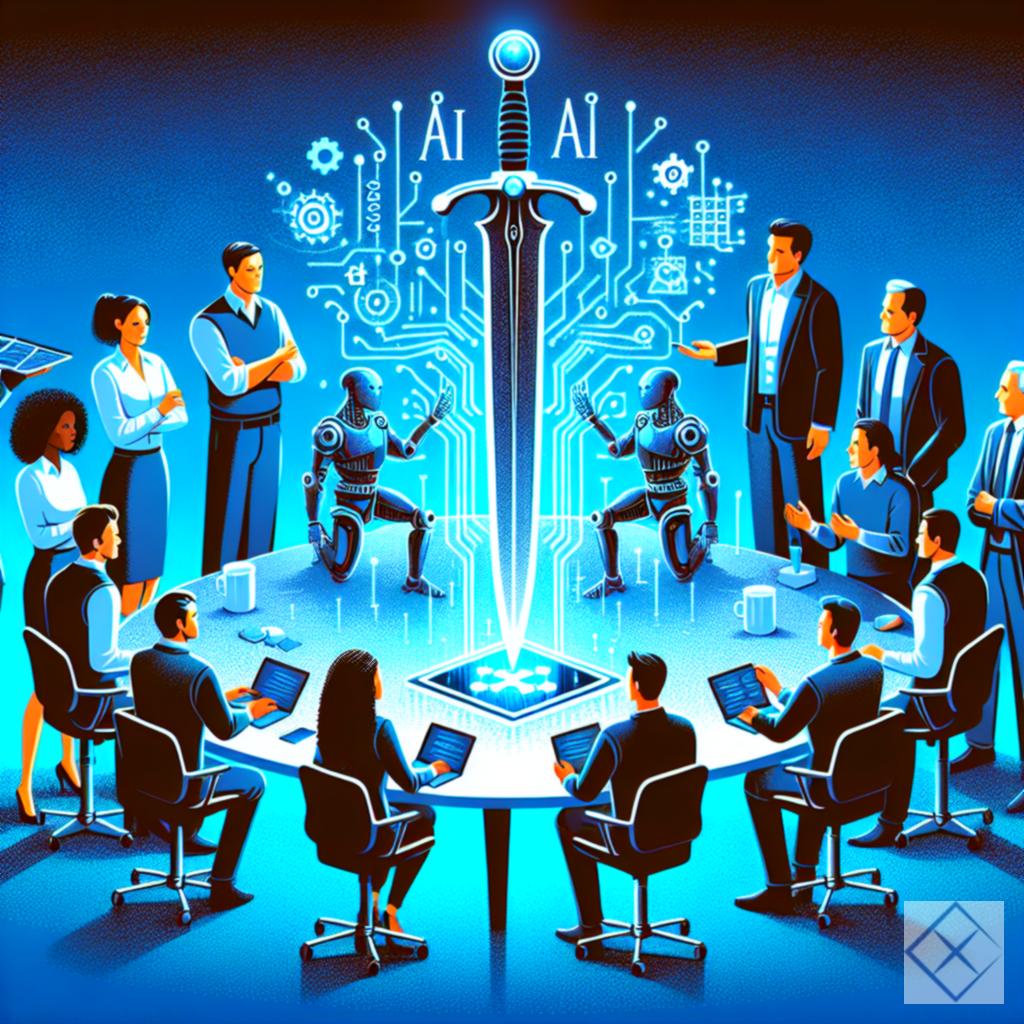CEOs and POs who are obsessed with AI

CEOs and Product Owners Obsessed with AI: A Double-Edged Sword
Artificial Intelligence (AI) is not a new phenomenon. Its roots can be traced back to the mid-20th century, yet it has recently surged into the spotlight, becoming a buzzword that seems to promise the solution to every problem. As software developers and engineers, many of us find ourselves in situations where company owners or product teams become overly enamored with AI, often to the detriment of sound engineering principles and product development.
The Buzzword Effect
Every few years, the tech industry experiences a wave of buzzwords that dominate the conversation. Not too long ago, it was cloud computing, followed by blockchain, and now AI is the star of the show. The pattern is predictable: a new “hammer” is found, and suddenly every problem seems to require a nail. This phenomenon stems from a combination of factors:
-
Investor Pressure: Startups often chase the latest trends to attract venture capital. A mere mention of AI in a pitch can lead to increased funding, regardless of whether the technology is truly applicable to the company’s core offerings.
-
Fear of Missing Out (FOMO): Executives feel the pressure to adopt the latest technologies to avoid being left behind. This anxiety can lead to decisions made without a full understanding of the implications, resulting in misguided investments in AI solutions that may not suit the company’s needs.
-
Cost-Cutting and Efficiency: Many CEOs view AI as a means to reduce operational costs and workforce. The allure of automation can overshadow the potential downsides, such as the risk of layoffs or diminished product quality.
The Role of Engineers and Architects
In this landscape, the role of architects and lead engineers is critical. When executives step out of their lanes to make engineering decisions based on hype rather than data, it falls upon technical leaders to guide them back. This involves:
-
Educating Stakeholders: It is essential to communicate the limitations and risks associated with AI. For instance, while AI can enhance customer support through chatbots, it is crucial to clarify the potential for inaccuracies and the implications of providing erroneous information.
-
Demanding Rigor in Decision-Making: Engineers should advocate for data-driven approaches. Before implementing AI, teams should conduct thorough assessments to determine whether the technology genuinely addresses the problem at hand or merely serves to satisfy a trend.
The Consequences of AI Obsession
The obsession with AI can lead to several negative outcomes, including:
-
Half-Baked Solutions: As noted in one comment, well-intentioned aspirations can result in poorly executed products. A small tech shop lacking an R&D department may find itself pursuing ambitious AI projects without the necessary resources, leading to wasted time and money.
-
Shiny Object Syndrome: The tech industry is notorious for chasing the next big thing. Once the immediate excitement of AI fades, companies may find themselves scrambling to adapt to another trend, leaving behind unfinished projects and disillusioned teams.
-
Quality Over Quantity: In the race to implement AI, the fundamental quality of the product can be overlooked. As one comment observed, the focus has shifted from creating excellent products to securing investment money, often at the expense of the end user.
Looking Ahead: Navigating the AI Landscape
As developers and engineers, it’s our responsibility to navigate this tumultuous landscape with both caution and optimism. Here are a few strategies to consider:
-
Promote a Culture of Innovation: Encourage an environment where ideas can flourish, but also challenge the status quo. Emphasize that technology should serve a purpose, not just fulfill a trend.
-
Focus on Real-World Applications: Identify specific problems that AI can address within your organization. This targeted approach can lead to meaningful solutions rather than superficial implementations.
-
Educate and Advocate: Engage with your leadership team to promote a deeper understanding of AI. Host workshops or presentations that delve into both the potential and the pitfalls of AI technology.
In conclusion, while AI has the potential to drive innovation and efficiency, it is essential to approach it with a critical eye. As the industry evolves, it’s crucial to keep a balanced perspective, ensuring that our pursuit of new technologies aligns with our core business goals and the needs of our users.
"Unlock your AI potential! Schedule a 1-on-1 coaching session to navigate the AI landscape effectively."
Related Posts
- How is Google using Machine Learning to automate comment resolution in code reviews
- Question: Ideas for interview participation for Technical Product Manager
- It feels like more and more we’re heading into a future with less software developers: whats your plan
- I am creating an AI Video Playlist. Please help me review its contents.
- Reorg and team carousel